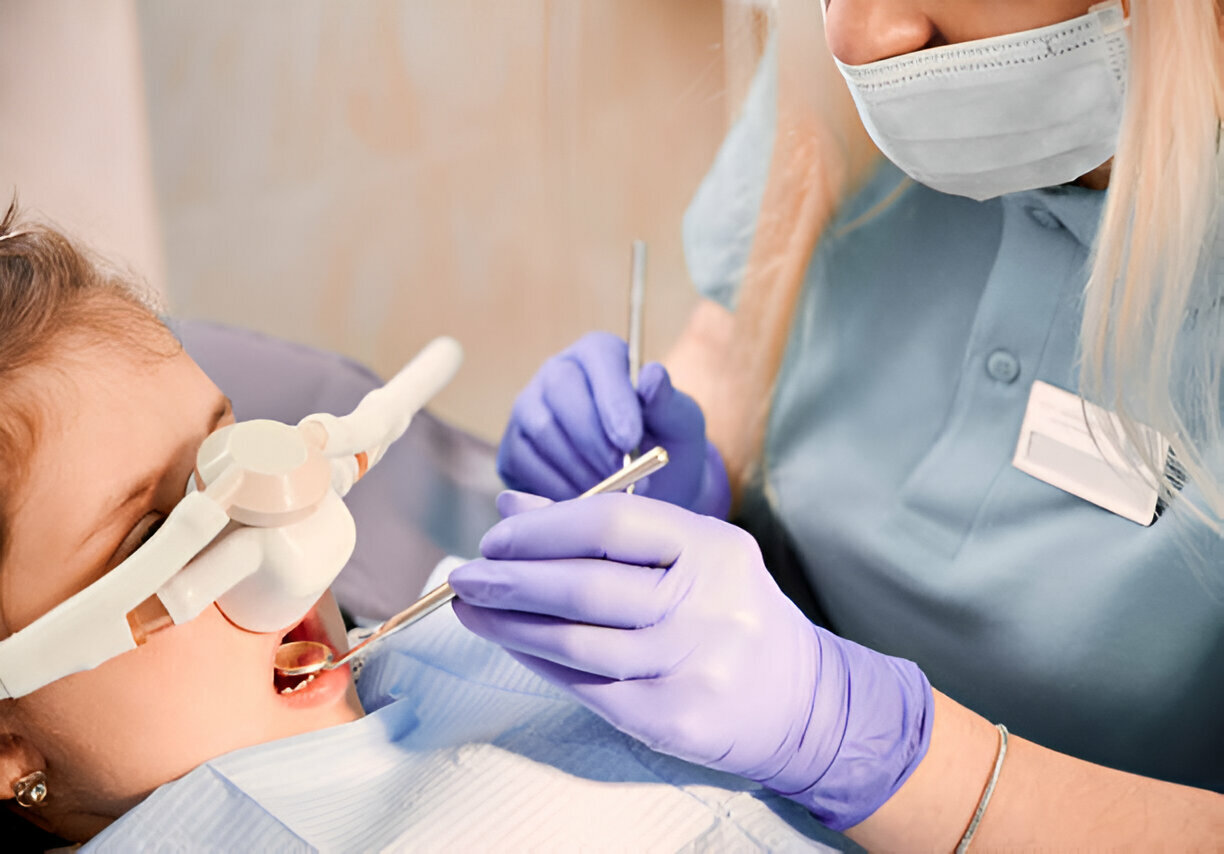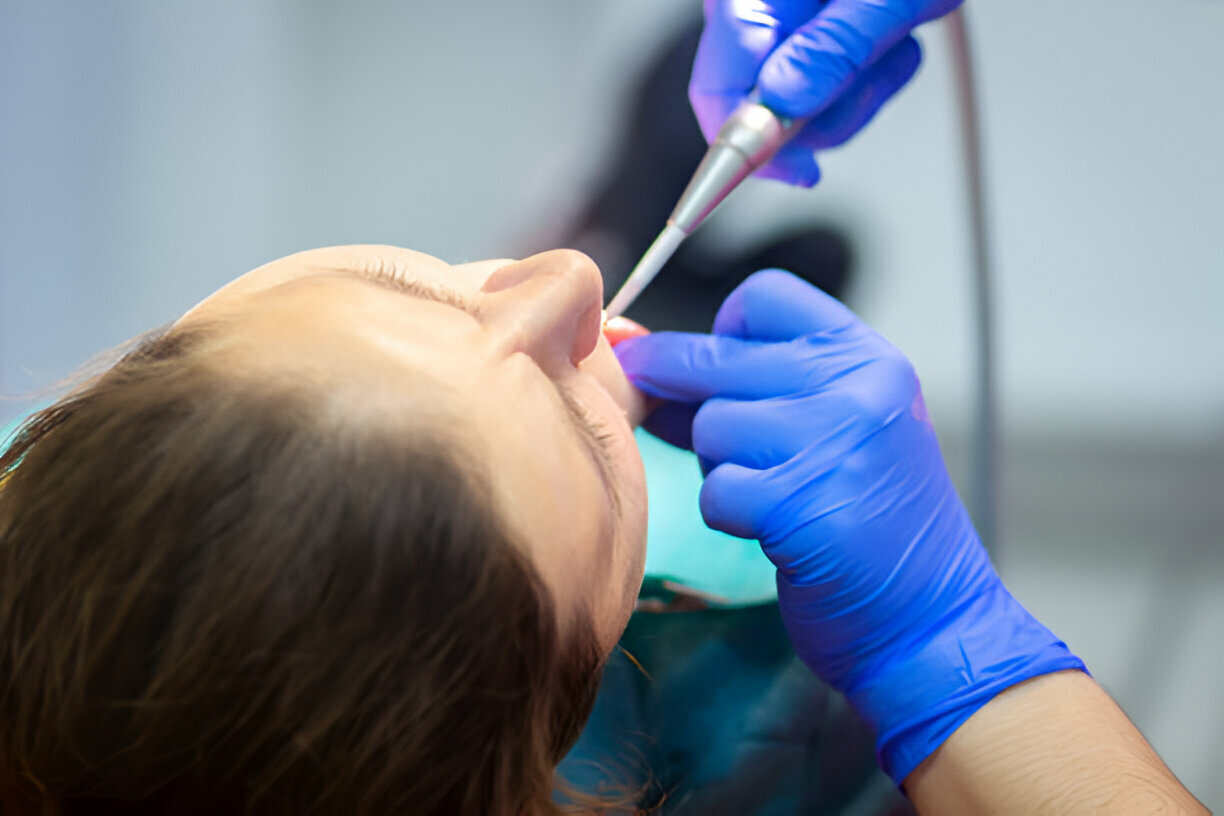
Summary:
Let’s face it: no matter the age, visiting the dentist can be an anxiety-inducing experience!
Be it due to the fear of pain, past traumatic experiences, or simply feeling uncomfortable in a dental setting, oral anxiety is common. It is among the leading concerns that prevent individuals from seeking necessary dental care.
Fortunately, sedation dentistry offers a sound solution for managing anxiety and ensuring a comfortable treatment for nearly 18% of Americans. Interestingly, however, when it comes to it, there are multiple levels of sedation you can opt for in the treatment procedure.
Keeping the same in mind, this blog covers different aspects of sedation dentistry via topics like:
- What Is Sedation Dentistry?
- Types of Sedation Dentistry You Should Know Of
- Which Sedation Option Is The Best for You?
- Precautions While Receiving Sedation Dentistry
Continue reading as we learn more about the procedure in the following sections.
What Is Sedation Dentistry?
Sedation dentistry involves providing different medicines during dental procedures. These drugs can help you relax or fall asleep during the process. Sedation dentists in Missouri suggest that the procedure is primarily designed for individuals who have dental anxiety and get scared at the thought of dental procedures.
Thanks to their prevalence and widespread popularity, various types of sedation dentistry exist today. They can be distinguished based on the nature of the operation and the patient’s requirements.
Who Should Consider Sedation Dentistry?
There are a variety of scenarios in which sedation dentistry may be suitable. Depending on your comfort in the dental chair and the nature of the procedure, your dentist may suggest sedation for the following:
- Dental Anxiety or Phobia: Fear about going to the dentist is a common reason for people to skip dental treatment. Sedation can help lessen these sensations and make the situation more bearable.
- Sensitive Gag Reflex: Some people have a strong gag reflex, making dental operations unpleasant or difficult. Sedation might help relax the muscles and prevent gagging during treatment.
- Complex Dental Procedures: Sedation can relax patients during lengthy or invasive dental operations. It is especially useful for oral surgeries like implant insertion or wisdom tooth extraction.
- Difficulty Numbing: Some people have trouble becoming completely numb with local anesthetics alone. Sedation might be used in addition to local anesthetic to provide a painless encounter.
Dental anxiety can be experienced to varied degrees. Patients who skip dental treatment due to stress and worry might consider sedation, which can help them get the oral health care they require. Patients with a strong gag reflex or extremely sensitive teeth and gums may discover that anesthesia makes operations considerably more comfortable and painless.
Patients with special needs and young children may also benefit from laughing gas or oral sedatives. A relaxed patient helps the dentist to perform effectively and securely.
Types of Sedation Dentistry You Should Know Of
When you consult your dentist in Kansas City, Missouri, ask them about your alternatives for sedation dentistry.
They may propose one of the following dependable options:
Nitrous Oxide
The most popular type of sedation dentistry is also the gentlest. Nitrous oxide, sometimes known as laughing gas, will not cause you to fall asleep during treatment, but it will help you feel more relaxed and elevated, resulting in a smooth and enjoyable process.
This type of sedation dentistry is provided using a face mask. It works rapidly and wears off quickly, allowing you to drive yourself to and from the clinic for your operation, which is not feasible with most other types of sedation dentistry.
Oral Sedation
Oral sedation refers to a group of drugs that reduces anxiety and helps patients feel calm and comfortable throughout the treatment. The procedure uses Benzodiazepines and other anti-anxiety medications such as diazepam and lorazepam. However, your dentist may recommend more drugs based on your specific condition.
This type of sedation dentistry is frequently indicated for those who experience mild dental anxiety. It is stronger than laughing gas and has a longer duration of action. Therefore, you must arrange transportation to and from the office on the day of the treatment.
IV Sedation
Intravenous (IV) sedation involves injecting the sedative directly into the patient’s veins, resulting in a strong relaxing effect. While IV sedation does not put the patient entirely to sleep, it does lower their consciousness to the point that they are unlikely to remember much of the treatment.
Dentists generally suggest it to patients in situations of acute dental anxiety or during a lengthy and complicated operation. This is a severe kind of sedation, and you will be unable to drive for a while following the treatment, so you will need to plan for transportation to and from work.
General Anesthesia
If the operation is complicated enough, your dentist will recommend general anesthesia. This type of sedation dentistry in Kansas City is provided intravenously, causing the patient to fall asleep.
An anesthesiologist can only provide general anesthesia and will also monitor the patient during treatment. Dentists generally provide a set of preparation instructions prior to the procedure. Moreover, patients are requested to be accompanied by their friends or family as they need someone to drive to and from the office on the day of the treatment.
Which Sedation Option Is The Best for You?
Unfortunately, you don’t have much of a say in selecting your sedation option! It primarily depends on the nature of your procedure, your level of dental anxiety, and other factors such as your current health and medical history.
Here are a few factors considered by the best dentists in Kansas City:
- Level of Anxiety: If you have minimal anxiety, oral sedation or nitrous oxide may be adequate. For moderate to severe stress, IV sedation or general anesthesia may be more suitable.
- Procedure Complexity: Dentists may use stronger degrees of sedation to improve your comfort during complex and extensive operations.
- Medical History: When deciding on the best sedation option for you, consider your general health and any pre-existing medical concerns.
- Professional Guidance: Always communicate with your dentist about your problems and get their opinion. They will consider your specific situation to assist you in making the best decision possible.
Precautions While Receiving Sedation Dentistry
Exploring your options is best when scheduled for a lengthy dental treatment involving sedation dentistry. Additionally, try to get an idea of the degree of dental sedation you will be administered.
During your consultation, you must provide the dentist with your medical history and any oral drugs you consume regularly, including vitamins and herbs. This allows the dentist to evaluate the appropriate dose of dental sedation for you.
Sedation dentistry levels range from light to moderate to deep, and the effects last for 24 hours before wearing off. A caregiver must accompany you to and from the dentist’s office and avoid strenuous activity following your dental operation.
Takeaway
- Sedation dentistry offers a sound solution for managing anxiety and ensuring a comfortable treatment.
- Your dentist may suggest sedation, depending on your comfort in the dental chair and the nature of the procedure.
- Dentists generally suggest it to patients in situations of acute dental anxiety or during a lengthy and complicated operation.
- Still wondering whether sedation is right for you? Contact our experts at the Dental Care Center of South Kansas City today.



